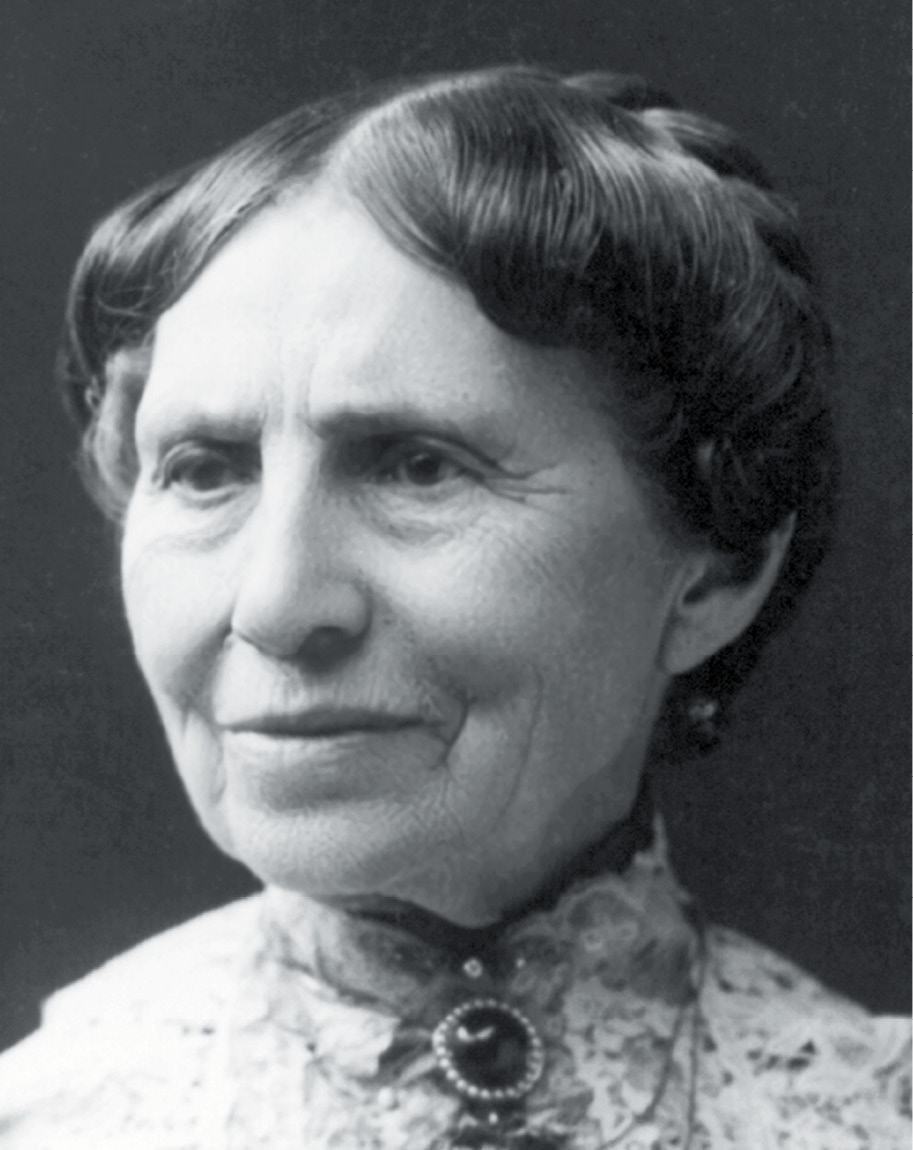Clara Barton

Hillary
When the Civil War started in 1861, thirty-nine-year-old Clarissa Harlowe Barton, better known to her friends as Clara, was working in the United States Patent Office in Washington, D.C., as a copyist. Before that, she had spent more than a decade as a teacher, during an era when most teachers were men. (She even ran a free school for poor children in New Jersey, though when a male principal was hired at twice her salary to take over, she resigned in protest. “I may sometimes be willing to teach for nothing,” she said, “but if paid at all, I shall never do a man’s work for less than a man’s pay.”) She was forceful, independent, and focused. All her life, she would struggle with bouts of depression; the best thing to help her bounce back was usually a problem in need of solving.
When the war broke out and troops poured into D.C., Clara quickly realized many of the soldiers were hurt and hungry. She gathered clothing, food, and bandages and brought them to the troops being housed in the not yet completed U.S. Capitol Building. To Clara, they were “her boys.” In addition to gathering medical supplies, she read to the men, cooked for them, wrote letters for them, listened to their problems, and prayed with them. Soon, though, she realized that the place she was needed most was the battlefield itself.
Clara lobbied the army to give her the credentials she needed to bring supplies and support to the front lines and volunteer. She convinced them to let her go. One night in 1862, after a particularly brutal battle in northern Virginia, she showed up at a field hospital around midnight with a wagonload of supplies. A surgeon working at the camp wrote: “I thought that night if heaven ever sent out a[n]… angel, she must be one—for her assistance was so timely.” She became known as the Angel of the Battlefield.
“She always had faith in the possibility of something better. It irritated her to be told how things had always been.”
—WILLIAM ELEAZAR BARTON, BIOGRAPHER
Danger didn’t bother Clara; being stuck with the medical units at the back of the military procession, sometimes days behind the action, did. During a winter-imposed break in Civil War battles, she wrote in her diaries: “I am depressed and feel dissatisfied with myself.” She struggled with the “thin black snakes” of sadness that threatened to close in around her until the fighting started up again and she could throw herself into another task. She even contemplated killing herself. More than once she raced ahead so she could be there for soldiers on the battlefields until the official aid got there. “I could run the risk,” she explained. “It made no difference to anyone if I were shot or taken prisoner.” It clearly did make a difference to the soldiers whose lives she saved through her daring.
As the war ended, Clara searched for another problem to solve. In 1865, she found one. That year, President Lincoln wrote in a letter: “To the Friends of Missing Persons: Miss Clara Barton has kindly offered to search for the missing prisoners of war. Please address her… giving her the name, regiment, and company of any missing prisoner.” She helped start the Office of Correspondence with Friends of the Missing Men of the United States Army, and she and her team answered 63,000 letters and identified over 22,000 missing men. Clara went on to help establish a national cemetery for the Union soldiers who died at Andersonville Prison in Georgia, the largest Confederate prison camp.
In 1869, while traveling in Europe, Clara heard about the global Red Cross network, headquartered in Geneva, Switzerland. Its members had called for international agreements to provide voluntary aid, and Clara took up the cause when she came home, helping to wage a successful fight alongside famous friends like Frederick Douglass to argue for the creation of an American chapter of the organization.
In 1881, at sixty years old, she founded the American Red Cross, which she led for the next twenty-three years. During her time, the American Red Cross helped victims of a forest fire in Michigan and a dam break in Pennsylvania. It shipped cornmeal and flour to Russia, where famine was rampant, and provided disaster relief to residents of the Sea Islands in South Carolina after a flood and survivors of a hurricane in Texas.
After she stepped down as president of the American Red Cross, Clara helped found the National First Aid Association of America and served as its honorary president. The organization focused on first aid instruction and emergency preparedness, both of which would later become key activities of the American Red Cross. She took up other causes, from prison reform to public education, suffrage to civil rights. She was recognized around the world for spearheading relief efforts during periods of immense suffering. Her firm, uncompromising personality sometimes rubbed people the wrong way, if you can believe it.
Clara was ahead of her time, and she refused to wait for society to catch up. She had bold ideas about our country’s obligation to help not only our own citizens but people around the world in times of crisis. She charged bravely forward. Because she did, she helped more people than we will ever know find relief, comfort, and peace—even when she had a hard time finding it herself.